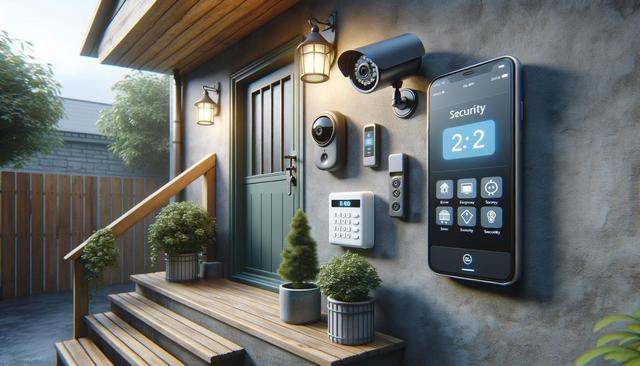
Understanding Home Security Systems: A Smart Step Toward Safer Living
What is a Home Security System?
At its core, a home security system is a network of integrated devices and components designed to detect and respond to unauthorized intrusions into a home. These systems typically include sensors on doors and windows, motion detectors, control panels, and often cameras and alarms. Some systems are professionally monitored, while others are self-monitored through mobile apps. With advances in technology, many systems now offer smart features that allow homeowners to control and monitor their security remotely.
Modern home security systems are not just about preventing break-ins. They can also detect environmental hazards such as smoke, carbon monoxide, and even water leaks. This multi-layered protection adds long-term value and reliability to any living space. For homeowners seeking a comprehensive approach to safety, a well-rounded system can be a practical investment.
Key Components of a Reliable System
A dependable home security system typically includes several essential components, each playing a specific role in protecting your property. These elements work together to detect threats and alert homeowners or emergency responders:
- Control Panel: The central hub that communicates with all the devices in the system.
- Entry Sensors: Placed on doors and windows to detect opening and closing.
- Motion Detectors: Monitor movement within a defined area.
- Security Cameras: Provide visual monitoring and can record or stream footage.
- Alarm Sirens: Alert occupants and potentially scare off intruders.
- Environmental Sensors: Detect issues like smoke, CO2, or flooding.
Depending on the size of the home and specific security needs, homeowners can customize their systems to include more advanced features such as smart locks, video doorbells, and integration with home automation tools.
Benefits of Installing a Home Security System
Investing in a home security system delivers several practical benefits. The most obvious is increased protection against burglary and intrusions, but the advantages extend further. Key benefits include:
- Peace of Mind: Knowing your home is monitored can reduce anxiety.
- Remote Access: Control and monitor your system via smartphone or tablet.
- Emergency Response: Systems can be linked to emergency services for faster response times.
- Insurance Discounts: Many insurers offer lower premiums for homes with installed security systems.
- Deterrence: Visible security elements often discourage potential intruders.
These advantages make home security systems a solid consideration for both urban and suburban homeowners. The added layer of safety can also be a key selling point if the property goes on the market.
Choosing the Right System for Your Home
Selecting the ideal home security setup involves evaluating your specific needs and living environment. Not all homes require the same level of coverage, and personal preferences play a significant role in the decision-making process. Consider the following when choosing a system:
- Home Size: Larger homes may need more sensors and cameras to ensure full coverage.
- Type of Monitoring: Decide between self-monitoring or using a professional monitoring service.
- Installation: Choose between DIY installation or professional setup.
- Smart Features: Consider whether integration with smart home devices is important.
- Budget: Determine a comfortable price range for both initial costs and ongoing fees.
Researching different options and reading user experiences can help clarify which system aligns with your lifestyle. Many companies offer flexible packages, allowing homeowners to start small and expand their systems as needed.
Maintaining and Upgrading Your Security System
Once a security system is installed, ongoing maintenance is crucial to ensure it continues to function effectively. Homeowners should regularly test their equipment, replace batteries in sensors, and update software or firmware if the system includes digital components. Routine maintenance helps prevent false alarms and ensures that the system responds promptly in real emergencies.
As technology evolves, upgrading your system can provide access to new features and improved performance. For example, newer cameras may offer better resolution, while updated apps can provide more intuitive user experiences. It’s also wise to periodically assess your security needs, particularly if there are changes in household size, property layout, or neighborhood safety trends.
Staying informed about the latest security tools and innovations can help homeowners make thoughtful decisions when expanding or adjusting their systems. By combining regular upkeep with occasional upgrades, a home security system can remain a valuable asset for years.
Conclusion: Why Home Security Matters
For homeowners looking to enhance the safety and comfort of their living spaces, home security systems offer a powerful solution. These systems provide more than just protection—they offer peace of mind, convenience, and a proactive approach to home management. By understanding the different components, benefits, and considerations involved, individuals can choose a setup that fits their unique needs and lifestyle. Ultimately, investing in a reliable home security system is a practical step toward creating a more secure and confident home environment.


